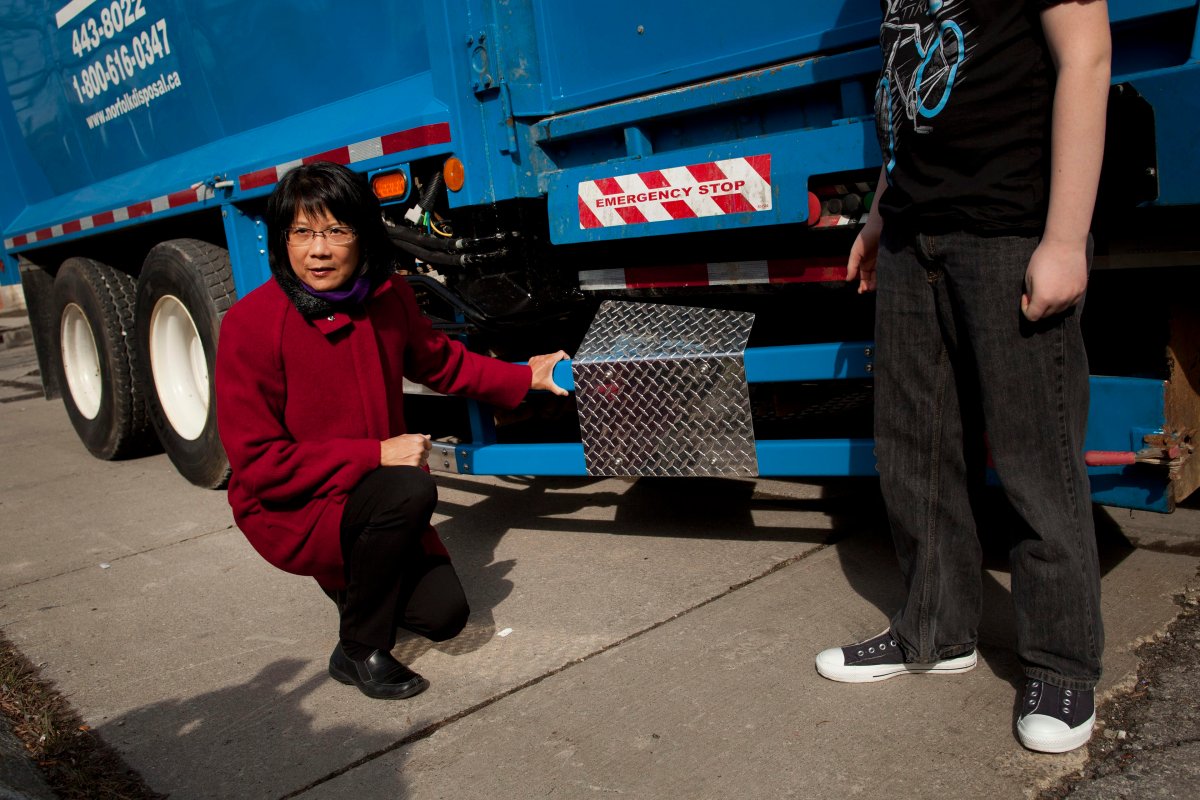OTTAWA – With 80 per cent of Canadians still driving to work, NDP transport critic Olivia Chow says more people would take public transit if the federal government invests in a long-term plan to make it better.

“More people will use public transit if they like the service. But to make that happen, we need to invest and that’s where the federal government has a role to play,” she said.
About 12 per cent of commuters arrive at work by public transit, up from 11 per cent in 2006, according to the 2011 National Household Survey released Wednesday.
That’s about 1.85 million people – only a fraction of the more than 12 million who take a car, truck or van.
The survey also found public transit takes longer, on average, than driving – up to 52.5 minutes each way for light rail or streetcar users, compared to just under 24 minutes by vehicle.
Chow said there’s a reason for that: not enough public transit.
“There’s not enough money, planning,” she said.
“It’s ad hoc, it’s a fragmented approach. But at the end of the day the federal government needs to take a leadership role and partner with all the levels of government to deal with gridlock.”
In major cities like Toronto and Montreal, the percentage of public transit users is higher, at almost a quarter of the population.
And Chow said that with investment, that number will surely go up.
“This is not a case of car versus public transit,” she said. “Quite a few transit users have cars.”
The Toronto MP reiterated her call for a national transit strategy, and called on the Conservative government to commit to a 10-year funding plan for municipalities. The Federation of Canadian Municipalities claims gridlock costs the Canadian economy $10 billion a year in lost productivity.
In June, Transport Minister Denis Lebel announced a $53 billion infrastructure investment over 10 years, starting in 2014-15. The money is slated for roads, bridges, subways, commuter rail, and other public infrastructure.
“This is permanent, stable, predictable funding,” Lebel said in his speech.
The money includes an indexed Gas Tax Fund and increased GST rebate for municipalities, as well as funding for major infrastructure projects and public-private partnerships.
But big-city mayors said they want dedicated funding to transit.
Chow believes more money to public transit will lead to greater good for everyone, with increased productivity and a higher GDP for Canada.
And if not?
“We will have less quality of life because we will be stuck in traffic jams,” she said.


Comments